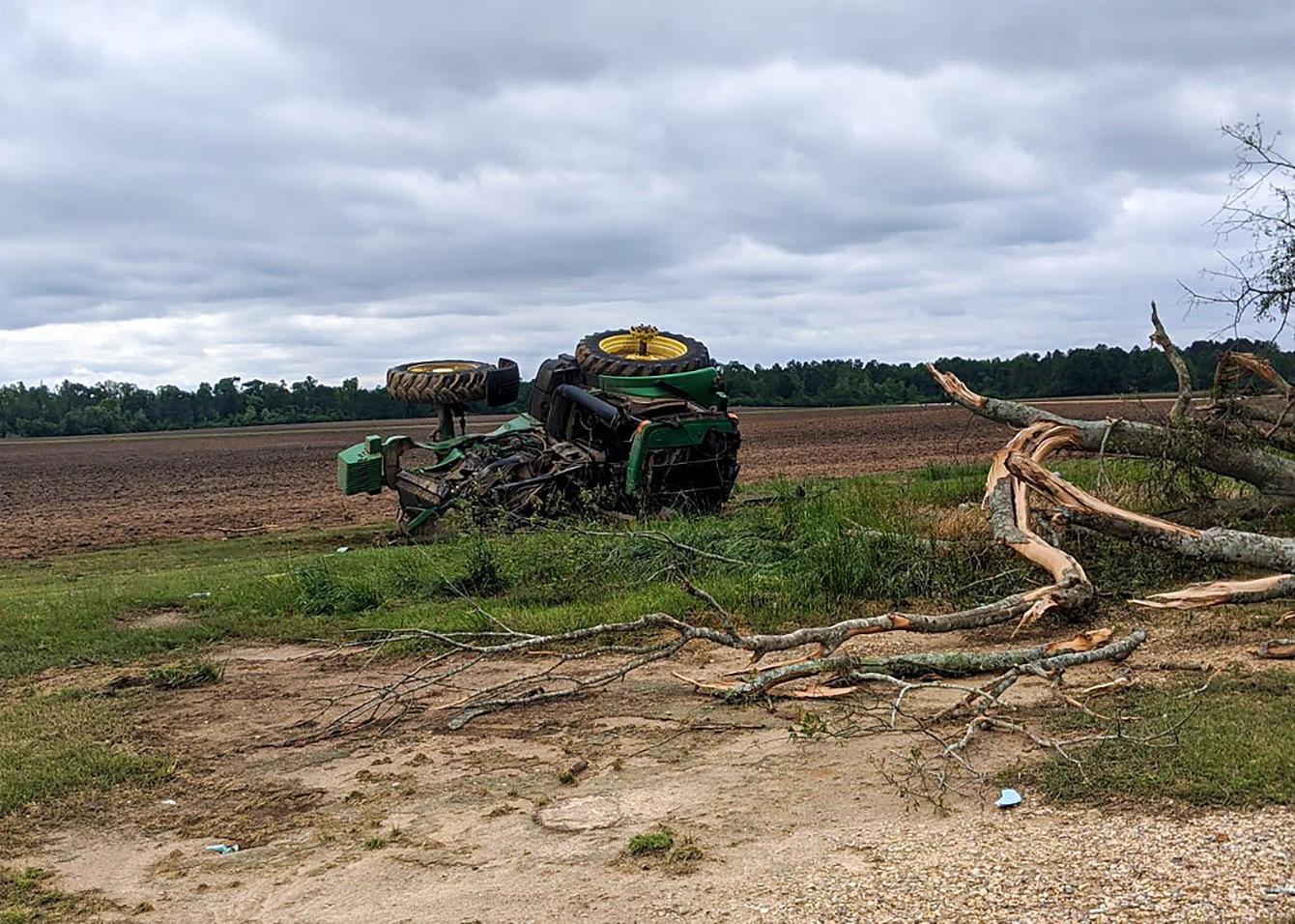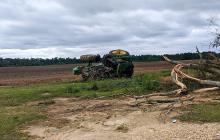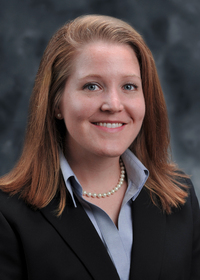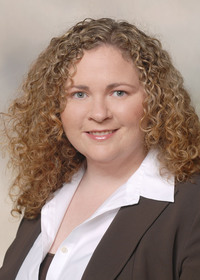Information Possibly Outdated
The information presented on this page was originally released on April 13, 2020. It may not be outdated, but please search our site for more current information. If you plan to quote or reference this information in a publication, please check with the Extension specialist or author before proceeding.
Storm recovery requires extra care during pandemic
STARKVILLE, Miss. -- Social distancing guidelines already urged by federal and state health agencies should be followed closely to prevent exposure to COVID-19 during post-storm cleanup.
A severe weather outbreak April 12 caused widespread damage across the Southeast, but south Mississippi was hit particularly hard after a series of tornadoes left 11 deaths, several injuries and property destruction in its wake.
The state remains under a shelter-in-place order to prevent the spread of the coronavirus, but power outages and structure damage are forcing some to seek temporary shelter elsewhere while first responders and volunteers are aiding in the cleanup.
“Storm victims and those assisting them are right to be concerned about exposure to the coronavirus. Physical distancing and sanitation measures must be followed even more carefully in these conditions,” said Mississippi State University Extension health specialist David Buys. “Remember to have a face covering, utilize phone or any other type of distance messaging, wash your hands as frequently as possible, and don’t touch your face, nose, or eyes with gloved or bare hands.”
Some displaced residents may need to go to a public shelter until they identify longer-term temporary housing.
“Wear nitrile or rubber or work gloves and change them often if dealing with a number of people in a community setting,” said MSU Extension governmental training officer Tom Ball. “Encourage those who go to shelters to bring face coverings and gloves and maintain at least a 6-foot-square distance to make it harder to share the virus if someone has it already, and don’t drink or eat after others.”
Food safety is also a major consideration after any disaster. Courtney Crist, assistant Extension professor in food safety, said food in the freezer that still contains ice crystals and feels as cold as if refrigerated can be safely refrozen or cooked, but all perishable foods left in the refrigerator when the power has been off for more than four hours must be thrown out. These include meat, poultry, fish, eggs and leftovers. The food safety rule is “When in doubt, throw it out.”
“In the event that the power goes out, keep the refrigerator and freezer doors closed as much as possible to maintain the cold temperature,” Crist said. “If it is half full, a freezer will keep the temperature for about 24 hours if the door remains closed. Buy dry or block ice to keep the refrigerator as cold as possible if the power is going to be out for a prolonged period of time. Fifty pounds of dry ice should keep an 18-cubic-foot, fully stocked freezer cold for two days.”
In many of the affected communities, cleanup crews have already begun debris removal. Remind family and friends who have property damage to be wary if approached by contractors offering their services unsolicited.
“Always verify the credibility of anyone you don’t know who might try to scam or overcharge you to make a quick buck,” said Becky Smith, Extension family financial management specialist. “Many well-established insurance companies and faith-based volunteer groups have good intentions, but you have to watch out for opportunists.”
Financial donations are always more helpful to disaster victims that material ones, and that is especially true during the current public health crisis.
“In between donation and receipt, material items may come in contact with someone who has COVID-19, and the virus can live for hours to days on some surfaces,” Buys said. “Storm victims can use financial assistance to purchase routinely donated items such as clothing and canned goods.”
To donate money, visit https://www.redcross.org/donate/donation.html/ or https://salvationarmyalm.org/donate-financially/. Financial contributions can also be delivered to local non-profit, civic or faith-based groups with tax-exempt status.
Extension Information Sheet 1716, “Safety Rules and Recovery Procedures after a Natural Disaster,” is available at http://extension.msstate.edu/sites/default/files/publications/is1716.pdf.
For more information on scams, visit https://www.consumer.ftc.gov/features/scam-alerts.







